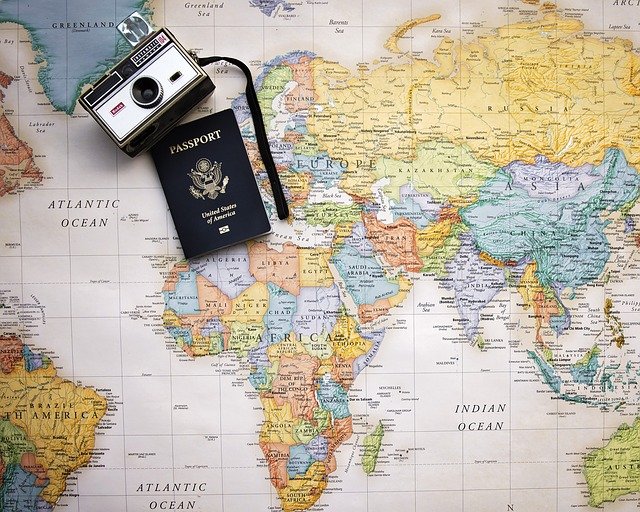
For many people, moving abroad is a chance to enjoy a whole range of perks, including higher salary, lower cost of living, better public transport, warmer climate, and more captivating job opportunities than at home. Do you want to take your career to the next level and achieve your professional and financial goals quicker? Moving abroad can be the answer. However, changing countries is often a complicated and exhausting process, so you need to remain committed to your decision and learn to embrace the challenges.
Here are a few essential tips to remember when moving abroad for better career opportunities.
1. Learn the Language
Is English the official language in your new country of residence? If the answer is no, you can expect the language barrier to be a challenge. Although English is widely spoken in professional environments, you may struggle with everyday interactions without a good grasp of the local language. Your local coworkers may also prefer to speak their native language. With no language skills, your interactions would be limited to other expats.
To avoid missing out on social and professional opportunities while abroad, consider taking a few language lessons before moving. Having a basic knowledge of the language will help you connect with your coworkers and make friends. It will also show your respect for the local culture and help you make an excellent impression.
2. Research the Health Care System
In the United States, employment-based insurance is the most common type of health insurance. Without health insurance, Americans pay for their medical expenses out of pocket. Outside of the United States, many countries have a universal healthcare system that is not tied with employment and covers the needs of all citizens and residents. When moving abroad for a job, it’s vital to research the health care system in the destination country. Will you qualify for a health plan? Is the public health care system known for its reliability and high standards? Can you expect long waiting times?
Medical expenses can cause significant financial stress. To avoid constant worries about subpar medical assistance or high costs, consider purchasing expat insurance. With a reliable insurance plan, you and your family can enjoy years of international health care coverage without any financial worries.
3. Connect with the Local Expat Community
Although moving abroad is an exciting opportunity that can enrich your life in many ways, the beginning can be arduous. One of the biggest challenges is not having a reliable social circle anymore. Social isolation is a common phenomenon among expats. However, the world is widely connected today. As an expat, you will join a massive community of global workers and international citizens. If you’re moving to a large city, you have a high chance of finding an international community.
Connecting with the local expat community will make you feel a sense of belonging when you arrive in the new country. Moreover, making contacts among the expat community can help you find valuable tips for settling in.
4. Clarify Your Tax Situation
When it comes to taxation, U.S. expats have a massive disadvantage. The United States is one of only two countries in the world where citizens must continue to file tax returns even after moving abroad. Thus, if you’re an American expat, the U.S. will want to tax your income, no matter where it was earned. To avoid legal problems, talk with a tax expert who can tell you all about your obligations and rights as a U.S. expat.
If you’re not a U.S. citizen, you can benefit from double-taxation treaties. You will start to pay taxes in your new country of residence and stop paying in your home country. Things get more complicated if you still have properties or other income sources in your home country. Always consult an international tax expert to understand your tax liability.
5. Use the Opportunity to Gain Wealth
In the developed world, the cost of living and housing prices have skyrocketed in recent years. As an expat, you can take advantage of the differences between your home country and the new country of residence to save substantial amounts of money. Many expats can save a large part of their paycheck without reducing their quality of life due to the differences in the cost of living.
By moving abroad, you may also get a better chance of buying a property. Even if you do not plan to stay abroad permanently, a property overseas is a great investment. You can sell it or rent it out when you leave.
Starting a new job abroad can open up a world of possibilities. You can advance your career, explore a new culture, learn new professional skills, and save money all at the same time.”As there may be various requirements for foreigners to get a job or invest in a foreign country, you need to get informed beforehand. For instance, if you are moving to Canada, you need to consider that hiring foreign workers in Canada has its challenges, and must be done with the right preparation. The first step is to make sure that you have the skills and qualifications that the company is looking for. Next, you will need to obtain a work permit from the Canadian government. This can be done by applying online or through a Canadian embassy or consulate. If you want to work in the US, You can consider an employment-related green card (permanent residency), an exchange visitor work and study visa, or a seasonal and temporary worker visa. The type of visa and work permit you’ll need will vary depending on your career goals.





